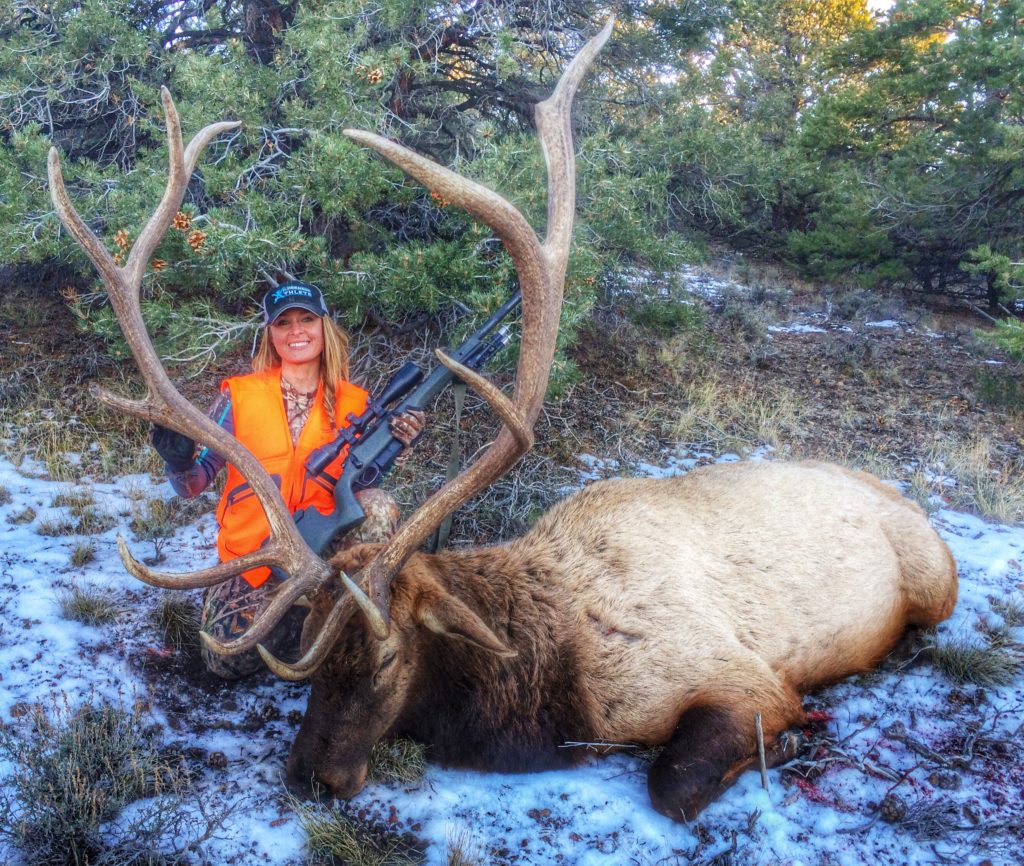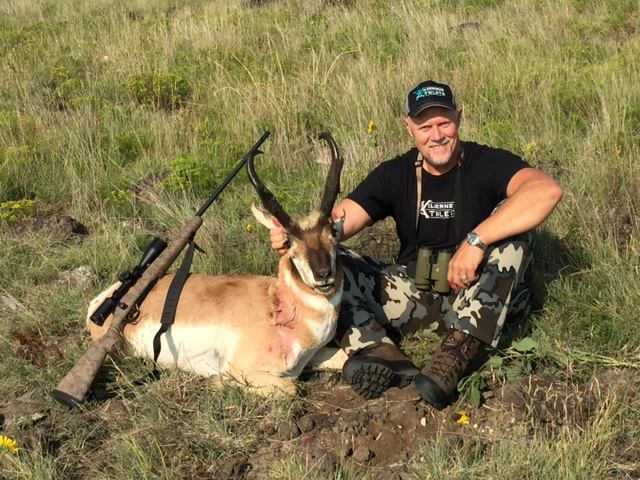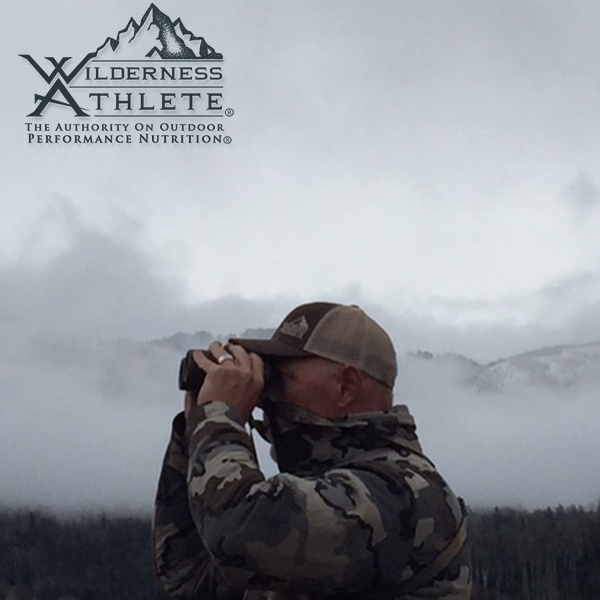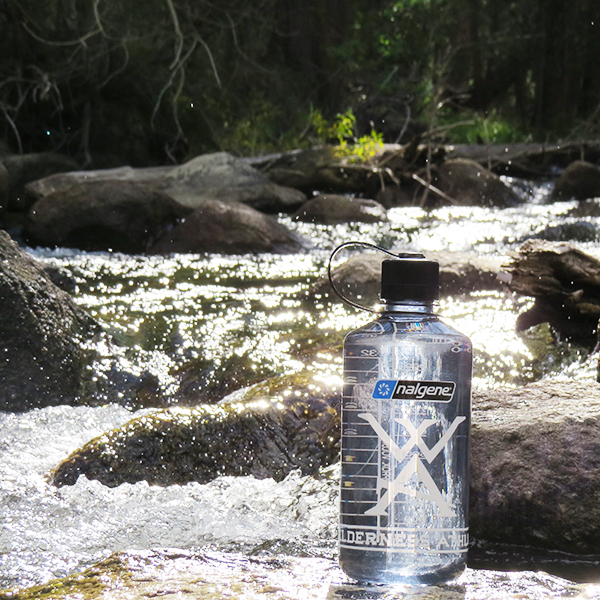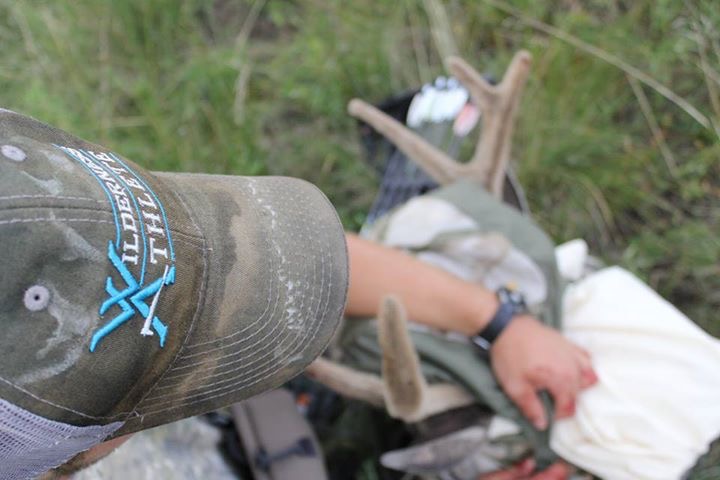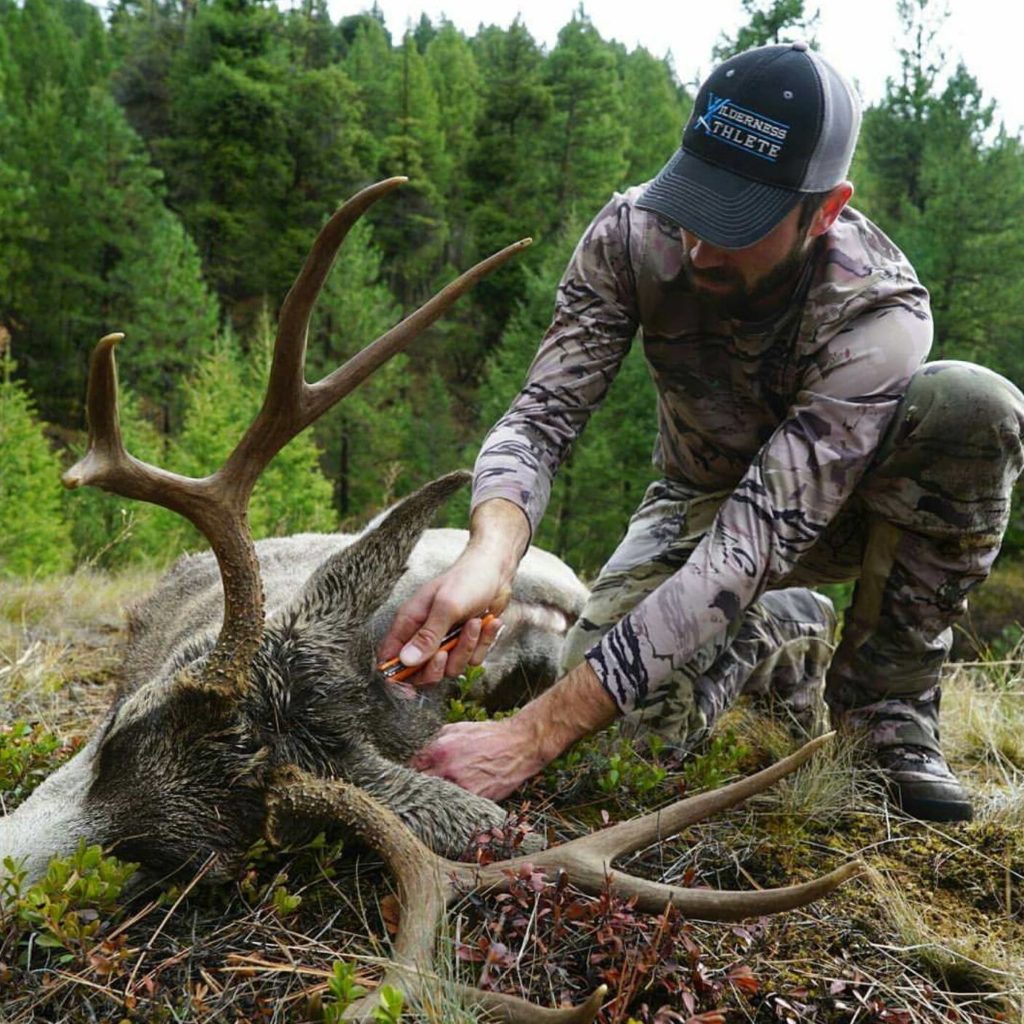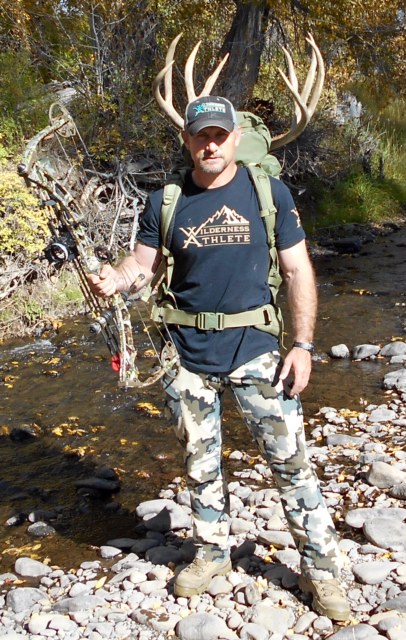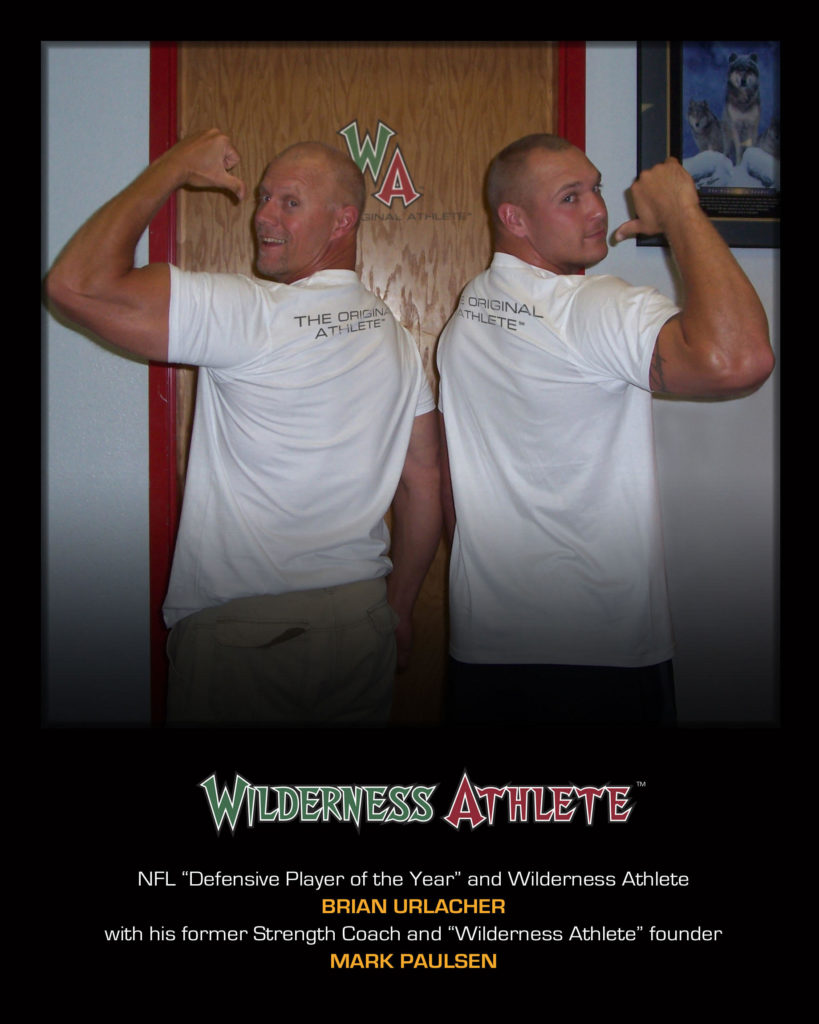The nutritional and sports supplement industry isn’t exactly known for its authenticity. Facts and science more often than not take a backseat to buzz words, eye-catching packaging and trendy, easy to remember product names. Worse, it’s a rare year that goes by without multiple supplement companies getting caught selling a product with subpar or even unhealthy ingredients. In the worst offenses, some products don’t even contain the nutrients claimed on the labels or in the respective company’s marketing efforts. No, authenticity, a commitment to science based formulation, and quality ingredients are the exception not the rule.
But thankfully, there are people like Coach Mark Paulsen in the world who break the mold. If you’re a hard-charging outdoorsman or woman, Wilderness Athlete is a company you’re likely familiar with, and if not you certainly should be. Their line-up of products and supplements is geared specifically for the harsh physical realities of the backcountry and the people who choose to pursue a life outdoors.
With an emphasis on total health, and an utter dedication to quality ingredients and scientifically validated formulation, Coach Paulsen blazed his trail into the sports supplement industry years ago. No one brings the same deep-seeded passion and wealth of experience both personally and professionally to their product line like Mark does at Wilderness Athlete. Combined with some of the most qualified sports nutrition scientists in the industry, Mark and his team at Wilderness Athlete are leading the way in producing the highest quality supplements a mountain hunter can put in his or her pack.
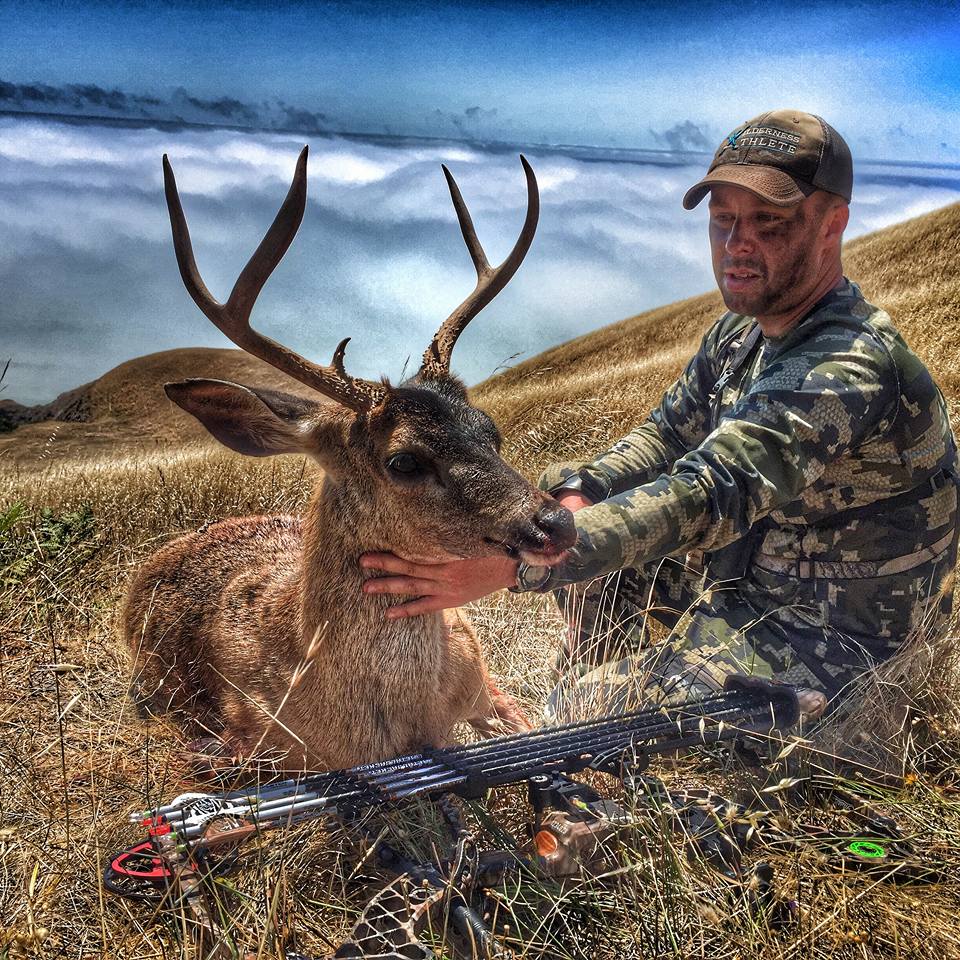
Thank you so much for taking the time to do this interview Coach. As always I like to start with the story and history behind the trailblazer, in this case of course Wilderness Athlete. So let’s hear it
Well, I’d be happy to and again it’s my pleasure. And it’s funny, when I first started talking with you, Adam, or visiting as I like to say your background in track and field which is similar to mine, very quickly broke down the barriers of distance and we got along almost immediately.
I went to the University of Kansas and threw discus and played football but you don’t do what you and I did as track and field athletes and not pay attention to your training, your rest and nutrition and all those things put together. Because, as you well know, you could win the Olympic Games in the Discus or Javelin and nobody in the world is going to know but you and your family.
Ain’t that the truth!
But I loved it. I think it was in part the solitude of it, not unlike being a hunter and I love a challenge. So to advance the story, I went to graduate school with an emphasis in nutrition. I coached athletes for 30 years. Obviously, quality nutrition and safe nutrition is a part of the equation and so is paying attention to details. Then about ten years ago, I looked at the landscape for the hard charging outdoorsman and really wanted to start a company that was dedicated with a really high quality nutritional line and offer it to them, and that’s how Wilderness Athlete came about. I’m a very lucky and fortunate man because along the way in my career, I have been blessed to know some really sharp formulators and biochemists from around the athletic world and I asked them if they would join me in this venture and they, again fortunately for me, said yes and so we started the company. It’s been a lot of fun. I’m not trying to make Tarzan out of the average person, I’m just trying to give them good nutrition so that they can live a long, healthy and productive life. I always tell people when you look at our product line, and I’ll wrap up with this: you can have health without high performance but you cannot have high performance without good health.
So we have a product line designed to just give people a fighting chance to be healthy and if they so choose, to be more competitive in their outdoor pursuits.
I want to circle back on a few specifics in that explanation – in particular the biochemistry and formulation side of things – but right now I want to get clear on something I don’t think we’ve discussed before which is: did you launch right from the beginning with a full suite of products like we see on the website today, or did you have a smaller line of core products? And second, did you start with performance in mind or a more balanced view of health and then performance?
Drill down on that a little bit for us.
I think it was a combination. I know that I’ve always been, and people in my profession have always been, strong proponents of foundational health which starts with a good, high quality, high absorption multi-vitamin. So we started the company with that. We came out immediately with what I think is the best hydration product in the world bar none, a product that significantly pre-dated the now highly popular and profitable energy drink market that we all know thanks to the Red Bulls of the world. I kind of saw past that but I do think that it requires energy to do anything serious in a hunting capacity and so we put together a very high quality, very healthy energy drink with a lot of nutrients in it. We also came out with, when we first started, an altitude product which I think, to this day, is very impactful for people who are flat landers going to high elevations.
There were also a couple of products we came out with that we no longer offer such as really high quality organic bars that provided some good protein. That is a very tough space to be in, and people loved our products, Adam, but when they got out of the woods they realised that the shelf life, because it was a high quality product, was fairly limited so we had to run sales quite often just to get rid of them before they expired.
So we decided to get out of the bar business. I’m not saying we won’t circle back and come out with a product in the future – we’re actually looking at one right now but we currently are not in the bar business. So that’s kind of where we started.
Excellent. So when you talk about the hydration product, that’s Hydrate & Recover?
Yeah, Hydrate & Recover. If you look at our nutritional panels, we put 1000mgs of Vitamin C in every serving. We beefed it up last year and put in an additional 400mgs of Branch Chain Amino Acids for muscle breakdown and tissue repair, and some adaptogenic herbs for stress mitigation, so when you look at the world of hydration, whether it’s Gatorade, Powerade, you name it, that science really hasn’t changed in fifty years and that really is somewhat of a tragedy. How is it these companies haven’t come up with or invested in a much more timely hydration product based on the latest science? So we’ve done that and we have a very strong following with our hydration product.
The addition of the BCAAs is integral. One of the guys who works with me here at the Journal was training for a 120 mile trail ultra-marathon this past Summer and he, towards the end of the training period, was absolutely swearing by a Branch Chain Amino Acid supplement. He really, really touted their benefits as far as allowing him to recover quickly. He would come out of a six hour run through the mountains one evening and then he would go out the next morning and finish another three to four hours, all while covering some serious distance and elevation. So those BCAAs, I think, are a really important addition to Hydrate & Recover and another example of your ongoing commitment to producing high quality, leading edge nutritional products.
Since we’re on that topic, Mark, why don’t you give our readers a little bit of a deeper understanding of why BCAAs are so important to hydration and recovery?
Well, “Wilderness Athletes” are people who are out there pushing the limits. We’re stoked because we’re out there chasing a particular animal or whatever we’re doing. It’s not like traditional athletics where you’ve got an event that lasts one hour or two hours and then you’re back in a warm shower. A true backcountry hunt can be pretty life changing and you’ve got to be able to sustain yourself. So Branch Chain Amino Acids are basically a protein chain that’s been disassembled. You’ve got your leucine, isoleucine and valine. In fact most of the research done on BCAAs points to leucine as the most critical in terms of repairing muscle and allowing the body to recover and so to have that in a form you can ingest, where the body does not have to break it down to utilise it, allows the body to adjust and adapt that much quicker and really wake up the next day feeling better and ready to get after it again.
I’d say everybody, and you’d know this to be true, everybody is excited to hunt on the first day – you’re optimistic, you’ve been reading magazines all year, you’re excited, your glucose and glycogen storage are at their top but at about day three and four, that starch goes out of your laundry. Mentally you start to fade and so the ability to physically stay in the game, I think, keeps you mentally in the game as well and vice versa.
Absolutely. You bring up an excellent point there. The inevitable mental lows that I think virtually everyone experiences on an extended hunt can’t be ignored in this discussion of nutrition and supplementation. They will happen. You’ll make mistakes or you won’t see animals or wonder if you need to push into the next basin or the next valley whatever it might be, and your nutrition plays a key role in how you weather those lows. And as you said, often around that 3+ day mark is when the body starts to go, well hold on, this isn’t a one hour training session or two hour hike with my 30 pound pack. No, you’re 3+ days into 50+ pounds on your back and that starts to add up especially in today’s day and age when most of us, even if we’re serious about our training, are still more sedentary than not. So with all that in mind, we need every edge we can get to enhance our ability to recover. Anything we can do to help this occur as efficiently as possible in these relatively extreme environments and situations is a no-brainer really.
Like you said, what we were talking about earlier, wilderness athletes as opposed to traditional athletes encounter things that you probably don’t train for because you don’t know what you’re going to encounter. You might have to go up a rock cliff, or all of a sudden end up on a mountainside that’s just full of deadfall and just brutally difficult, that’s wearing out your abductors and you probably weren’t training for that so again, the ability to recover is integral.
It’s funny. I just got back from a mule deer hunt yesterday and the hardest part on me was my feet. I’m 56 years old, I’ve had two back surgeries, three knee surgeries – let’s just say I’ve been through the wringer – but what wore me out the most was my feet! Why? I’ve been preparing with some new Kenetrek Boots and I didn’t expect this hunt to be quite so difficult so I took a lighter pair of boots which I had not trained in and holy mackerel, big mistake! My feet – it’s funny the things you don’t think about and you’ve got to pay attention to those things. Anyway, it’s challenging and I love it and that’s what our company is designed to do, is to simply be a support system. And pay attention to the nutritional component because if you don’t, it’s going to pay attention to you.
Absolutely! I think to cap off the recovery and extended hunt challenges, Mark, I think it’s quite difficult in fact to fully or adequately prepare for the unknown. We’ve written about this in our Mountain Fitness column, this idea of expecting the unexpected. You bring up our track and field history, and I want to be clear to our readers, I was not a discus thrower like Coach Paulsen was, I was just a lanky spear throwing javelin guy so I’m not in the same size and throwing category as the Coach was. But, be that as it may, it’s one thing to train for a throwing or running event, or football whatever it might be because the demands are relatively defined. In a team environment, yes the team is going to impose certain demands on you and you have to be able to respond to those demands but it’s still within the construct of the rules of the game, the field, court or whatever the case may be.
In the mountains, you can prepare but as you described all it takes is a small change in your gear or the conditions and that prep and planning can go out the window. Maybe you realise you have to go a lot higher or further than you planned, and you have to be able to adapt and handle that. Now some of that is going to come from your training but some of it is going to come down to proper nutrition, hydration and recovery and anything we can do to hedge those risks a little bit, Mark, I think is really essential.
Well, it’s funny. Here I am, I’ve made mistakes even after being involved in these adventures as long as I have. I’ve taken off on an early mountain hunt and dove into a canyon thinking, no sweat I’m only out for the morning but didn’t put enough calories in my system. Of course I ended up getting an animal down and man did I suffer. You have to put thought into it. Like you say, you go on extended hunts – that’s not something you should go into lightly because you can get yourself in a bad way really fast and there is no reason to do that. I think nutrition is or maybe was something that was not given a lot of attention and I’m glad to be a part of the company that’s really leading the charge there.
Absolutely. You guys did lead the charge in this specific segment, there’s no question about it. The hydration product itself, Mark, is incredibly well designed. I think it’s a product virtually every hunter should be carrying or at least something very similar.
Let’s fast forward to the present day, despite being what I would certainly define as the trail blazer in this category, Mark, there are other options on the market nowadays and there are certain companies out there who are prolific when it comes to their marketing efforts but one of the things that appealed to me and drew me to Wilderness Athlete in my research before you and I first spoke, was the obvious emphasis on quality and formulation. So, give us your personal perspective on that side of the industry – reading the labels etc – to provide the layperson with a behind the curtain look at what goes into the chemistry and formulation and why quality is something that they absolutely have to pay attention to.
Well, there are a lot of buzz words out there and whether it’s whey protein, or it’s this particular ingredient or that particular ingredient, what most people are not aware of is that nutrients often need to be placed in a setting where there are other nutrients that make them much more powerful, or amplifies them in other words and allows them to be absorbed. These are called precursors. So quite often, nutrition requires multiple nutrients placed in the same formulation to actually pull out or extract the very aspects of that particular nutrient or nutrient combination that produces the results we’re looking for physically or mentally.
If you go to our website at www.wildernessathlete.com and look at our formulators, I take great pride in the people we’ve partnered with in this capacity. Our Research and Formulations Board is unparalleled. We have Dr Harry Preuss, literally the most recognized nutritionist in the United States, who I was fortunate enough to meet on a fishing trip and we sat in the same boat and became good friends. Vladimir Oleynikov out of Russia from the Moscow Sports Institute, himself an Olympic Pentathlete, and then Richard Scheckenbach the master formulator with a Biochemistry Degree from UCLA. We just added a gentleman named Eli Lankford out of Idaho who is from the Sports Medicine end of things and so why do I emphasise these guys? Because they’re not involved with WA because they’re people interested in building a business or making money, they love putting out quality products that are safe not only for you and I, Adam, but for younger people as well.
All of our products are manufactured in what’s called an NSF, National Sanitary Facility so that there is no potential for cross-contamination with a company that might use, let’s say, a compromised formula with some stimulant or illegal formula – that kind of a thing. We take incredible pride in the quality of our formulations and I’m not saying they’re perfect, I’m saying they’re as good as we know how to make them now. If new research comes to the forefront and we need to make an adjustment, well we’ll make it even better.
So there are other companies out there sure – and to be clear I actually love competition – I’m a capitalist, I believe in the free market system and I think competition makes other people rise to the occasion. There hasn’t been enough notoriety or competition in this space at all and so that lends itself to where people don’t think they even maybe need to pay attention to it. But now, because there are other companies, they’re starting to think they really should pay attention. I’m so confident that if they try our product and they try a competitor’s product, they will come running back to Wilderness Athlete. I’m just that confident in who we are as a company but I certainly do not fear competition in this marketplace whatsoever. I think we have a competitive advantage with the people that are involved so I’m very comfortable with it.
I’ll add that having used a variety of supplements from a vast array of brands over the past 20 years, you rarely if ever see a list of people with that sort of scientific background, except when going through a course syllabus at a top notch college or university!
You’re being too kind to the industry itself because you and I both know there is a preponderance of fraudulent nutritional products and claims in the marketplace and it’s unfortunate. I remember back in the day when I was a young athlete, I would take some protein that would just cause a tremendous amount of bloating and gas and I didn’t know any different. We all thought it was the same but as time goes on, I believe one picks up some wisdom through experience and I think all the products that we put out are highly digestible, high quality raw materials, made in squeaky clean manufacturing facilities and something that you can be proud of to use not only for yourself, but your whole family.
Absolutely. That’s great. Now let’s move over to the hunting side of things. As a young boy, were you raised in a hunting family or did you come to it later in life? Give us a bit of background on that side of Mark Paulsen.
Yeah, I’d be happy to. I grew up in a little town of 400 people in Northern Minnesota so I can relate to Canadians, trust me! I wasn’t that far away, a couple of hours. Actually, Minnesotans go to Canada to fish and people from Iowa, we call them Iowegians, they come to Minnesota to fish!
I spent my life either trapping or fishing – there were rivers and lakes all over the place, and it was a Tom Sawyer or Huckleberry Finn sort of existence. We were either in a swamp, in a river or on a lake, fishing or hunting something and that’s the way I was raised. I wouldn’t have it any other way. I feel sorry for kids today who did not get a chance to grow up the way I grew up and I have very, very fond memories from that time, even though we were freezing nearly to death about six months out of the year! I thoroughly enjoyed the lifestyle I had as a kid. In fact, I have a saying, as we built this company, Wilderness Athlete, that I’m just trying to make enough money to get back to doing the things I used to do when I didn’t have any money!
HA! Isn’t that the utter irony of what, I’m sure, so many of us are also trying to do!
It really is. Nobody had money when they were kids. But you’d go dig your own worms, or take a couple of daredevils or a handful of shotgun shells and just have the time of your life. It really is the ability to have time on your side and enough resources so you can go and enjoy your life. The greater things in life don’t really require much money but you do have to have some time to get out there.
Isn’t that the truth! I heard somebody say this a few months back and it’s a mantra I will never forget: Time is the only truly priceless commodity we own. The irony is, like you said, most of us who are deeply passionate about hunting, fishing and the outdoors are fighting the good fight, working hard, putting the hours in to make the money to get the time to go and do the things that we did with no money at all!
But on that note, tell us about your first hunting memory Mark. What was that experience like?
Oh boy, I’ll tell you the one that stands out the most. It wasn’t my first hunt but, my Uncle Roger was a big whitetail hunter and so he would come up from Minneapolis. He’d go up to the north country to hunt and we were going to go on a deer hunt and my gosh, this was living. I’m 12 years old and I’ve been hunting with a shotgun for a long time but in little towns like I grew up in, you had all these characters. There was a guy by the name of Corky Anderson that owned the little gas station and I knew Corky would go to Montana and hunt mule deer and so I went to Corky and I asked him if I could borrow his 30-06 Remington pump with a scope on it. I didn’t have any idea what a scope was for but I thought it looked cool and so Corky let me borrow his rifle. So we went out to the woods and my Uncle put me in this spot on a trail and instead of going up there with my shotgun, I had this high-powered weapon and man, did I think I was living large.
So I’m sitting on this trail all by myself and all of a sudden I hear these hooves pumping and this big whitetail buck jumps over this pine tree, comes running right at me and I pull up this old rifle with this scope on it and I couldn’t see a thing! The buck was probably no more than 30 yards from me and ran by me and ran away and I never pulled the trigger! I sat there pretty much dejected thinking of how I was going to tell my Uncle.
But about an hour later, here comes another buck. Same thing. Comes over the same pine tree and this time I thought I caught some fur in the scope and I let some lead fly. Guess I didn’t hit anything, and I’m not so sure I didn’t start crying but I was just so dejected, again, because if I’d had I had my little pump 20 gauge, I would have killed both those deer. But here I was, I had to be a bigshot and so I’ll never forget that. It still bothers me ‘cause when you’re from a little town like that, if you can throw that buck on the hood of your truck or in the back and drive around town, you’re pretty much a hero.
That’s hilarious. Every time we speak Mark, we find something in common. I grew up in a town of around 400 people in Eastern Ontario which sounds like a very similar setting to your upbringing and you’re spot on. Every deer season there would be someone that brought down a great buck and drive it through town in the back of the truck. The blaze orange jacketed hunters would all pile out of the general store or gas station and have a look. It’s great to hear that’s an “international” tradition!
Yeah. I’m not so sure how many of those bucks were even edible by the time they made it to the butcher’s shop! But again, it was great. There was always that one week where the entire high school smelled like bones because everybody was bringing in the racks and going to the shop and using the bandsaw to cut the antlers off!
Isn’t that the truth! I sure hope that it’s still happening in those communities across Canada and the US because it’s something that I think young boys and girls, especially nowadays, should all have a chance to experience, basically communities that still, to an extent, live and revolve around the hunt. As more of us move into the bigger urban environments I think we lose touch with some of those great experiences.
It’s so funny, now I’m getting to the age where I really miss all that. I don’t get to see enough of my old buddies. We go to Canada, usually up by Lake Winnipeg to fish. I really want to slow down now despite the growth of our company and spend more time doing the things that mean the most to me. Obviously you know this, it’s not necessarily harvesting the animals, it’s as much about being in camp, having the time of your life. We had a deer hunting shack and we’d go up to that little deer hunting camp and that thing couldn’t have been more than 12 feet wide by 10 feet wide with bunkbeds built in but the memories that come out of those places are just indelibly etched in my mind. I want to do more of that now that I’m getting to be the age that I am.
I can absolutely understand that and have started to feel the same sentiments myself…and I’m only 35! Coming back to your points about working hard and trying to make the money to do the things you did when you didn’t have any money, at the end of the day, whether you’re a billionaire or a regular guy or gal, health or the lack thereof is the great equalizer. And in many cases, the stresses associated with trying to make more money to buy this or that means very little in the grand scheme of doing more of the things you love.
I certainly agree. I also want your readers to know, Adam, I’m no health and nutrition Nazi. The thing that drives me crazy about the world that I’m in with Wilderness Athlete is there’s this more often than not false image involved trying to make everyone be all muscled up or lean enough to star in some contest.
I truly believe there are times when it’s perfectly OK to just let your hair down and have a good time. So we’re here as a company to provide support to the active outdoorsmen and women out there. We’re not here to tell you that you need to eat squeaky clean and live this super, ultra rigid nutritional life so you can look like a fitness model. That is not what we’re about. If I really had to boil it down, it really is as simple as how many more years do you want to hunt? How many more years do you want to be active: with your buddies, with your children, with your grandchildren. We want to be part of helping you live a healthier, happier more productive life in any way that we can. So whatever that amounts to, I hope that’s how people perceive us and not as an elitist nutritional company for strictly high performance type people because that is not who we are.
I feel like that comes across pretty clearly in the marketing and messaging from Wilderness Athlete and more importantly Mark it certainly has come across very clearly in our personal interactions.
I just want people to be healthy and make sure they get the right micro and macronutrients and if it’s just our multi-vitamin or just our hydration or energy products that help a person achieve that, great! With our hydration energy drinks specifically a lot of people mix them together because they’re so highly palatable. They taste fantastic and it’s a feel good product quite frankly and that matters. You should enjoy your supplements. You shouldn’t have to choke them down. So I think if people put their toes in the water and give us a try they’re going to be happy with their experience and hopefully become long-term customers and live a healthier life.
Let’s run with that a little bit, Mark. Where would you suggest the average person start in the WA line-up? Whether or not they have a bit of experience with supplementation what would be the core products you’d recommend?
My suggestion would be that they start with our Hydrate & Recover number one. Number two would be our Energy & Focus. We’ve got a couple of flavours and in fact in the next two weeks, we’re coming out with a third flavour of each so we’re excited about that. So I’d say start with something that just has that base nutrition in it along with our multi-vitamin. We have a 10 Day Challenge which simply involves taking those two products with our multi-vitamins so that someone can literally say okay I’ll give you guys 10 days and if I do feel a difference, I’m in. I’ll take that challenge every day of the week.
I’m also a firm believer in digestive health and we’re in the final process of coming out with a probiotic in about three weeks. I know that a lot of the healthy enzymes and probiotics have been manufactured right out of our food sources and so it’s a key addition to our line-up and an unbelievably reasonable product cost-wise. I hope people will look at a probiotic for just day-to-day use, 365 days a year.
I don’t know how it is in Canada but the United States is a physical train wreck. Seven out of ten Americans are obese so our shakes are another great option for someone looking to lose some weight – we have vanilla, strawberry and chocolate – and they are so packed with nutrition and fibre. The ability to consume one healthy shake a day could cut a person’s overall calorie load down by about 500 calories a day. You do the math on that for 365 days a year and see if that doesn’t result in a measurable improvement in someone’s health. For less than two bucks a serving, you’re basically getting a meal that can, again, give you the nutrition you need and allow you to cut some body fat. So I would probably start with that for those more interested in weight loss.
So to recap, our Hydration, our Energy, our multi-vitamin and one of our shakes and then our probiotics as they should be out in the next three weeks.
Excellent. That’s exciting about the probiotics. To me, it’s a pretty good marker for how forward thinking you guys are. I’m not surprised by it but the fact that you’re jumping on that part of the overall health picture just speaks volumes about Wilderness Athlete’s commitment to that well rounded total health picture. Gut or digestive health has really gained some momentum across the whole health spectrum, from physical performance to even one’s cognitive abilities. It has become a truly integral aspect of one’s total health picture. It’s fantastic that you guys are doing that. It’s exciting.
Yeah, it is. I’m fortunate and old enough to have seen what can happen on a positive level to people who have not paid attention and then they all of a sudden realise that they better pay attention and make a substantial improvement in their health and well-being by simply paying attention. I’ll quote Dr Cooper from the Cooper Institute in Dallas which is considered the top cardiac hospital in the US, he said it’s far cheaper and less expensive to invest in your health while you have it than it is to try and recapture it once it’s gone.
Absolutely.
I would encourage your readers to really think about that quote. You invest in a good gun, you invest in good archery equipment, you invest in your optics and your body is, as we say around the office one of the most important pieces of equipment you own! So you need to invest in your health. It’s not a given. You don’t deserve health just by virtue of walking around. You need to earn it and work at it.
And in the realities of the 21st Century when most of us are spending far too much time in some form of a seated position be that commuting or at home – the research is fairly irrefutable. The very, very overused phrase these days, albeit factual, is “sitting is the new smoking”. One’s health is not a right. It is not a given, it’s something that does require accountability and the nutrition side of it is ironically, Mark, one of the easiest places to start! With the click of a mouse some products are going to show up at your door and you start taking it and you’re already on your way. Sure everyone has to put in the hard yards, it’s not as simple as just taking something and life’s going to be rosy, but that’s a critical first step to getting further down that path of health.
I’d agree. We are the most educated generation with unlimited access to information due to the Internet and everything we can research and yet we’ve never been more unhealthy. There’s this phrase I heard from someone – I forget who it was – but the gentleman said: Life is designed to push you away until you develop the skills to push back.
Wow, that’s great.
Isn’t that a good way to look at it?! Life can beat you up so you better figure it out and there has never been more information out there in regards to your health. But you have to take and spend the time to make that happen.
Absolutely, I couldn’t agree more. Ok, as usual let’s finish off with a few rapid-fire questions. Toughest hunt you’ve ever been on?
The first archery elk I ever killed. It was in Northern New Mexico and I didn’t know what I was doing and probably shouldn’t have killed this elk but I shot a nice 6X6. We were eight miles back and we had to make a couple trips. So, I went into that hunt weighing about 256 pounds and I came out seven days later and I weighed 227 and I hadn’t weighed that since I was 19 years old.
Holy smokes!
Everyone that knew me and saw me after thought I was sick! My cheekbones were sticking out and everything! But it was an adventure and it really solidified my love for archery elk hunting. Obviously an experience of that nature is one you don’t soon forget, but truly, I was clueless about what I was doing and I just got lucky.
That’s great. What would be at the top of your bucket list for a hunt?
Gosh, you mentioned moose hunting before we started the interview and son of a gun they’re quite a critter. Of course one of the reasons I love to hunt is because I love the meat that comes with it. It’s hard to not look at a moose and go, man there’s some food on those bones! So I think I would like to go on a really good moose hunt.
The other thing though, and I’ll keep this short, is I would love to go out on one of those big coastal black bear hunts where you get to go out and park it on one of those boats and pull up the crab pots and eat lobster and shrimp and crabs every night for five nights and then go kill a big black bear. Now you got me thinking about food!
I think it’s a little fitting that the founder’s passion for food has been brought to light very clearly on this call. If you ever doubted the love for food of one Coach Mark Paulsen, we can consider it loud and clear.
That’s for sure!!
Last couple of questions – this one a hypothetical – if you could put a billboard somewhere in North America where you knew every hunter or fisherman or woman would see it, what would you put on that billboard?
I’m going to give you two phrases that I would put on it. Our slogan that we mentioned earlier: the most important piece of equipment you own is you. It simply makes people stop and go, you know maybe I should take better care of myself. The other one would be pulling at the heartstrings a little bit more but I think I mentioned this earlier too: How many more years do you want to be physically capable of enjoying the outdoors?
I think they’re thought provoking is what they are. I don’t like to spoon feed people stuff. I want them to think and put some thought into their life and not just make it blatantly obvious. Sometimes you’d be smarter to be blatantly obvious but I hope that makes sense?
I love both of them. Last one: What are your top book recommendations? Let’s say two or three books you’ve either gifted or recommended a lot, ones that you find yourself re-reading. What are those core books for you?
Because of my background in coaching athletes, or maybe it has nothing to do with that, I love reading books on strong characters in leadership. Jack Welch wrote a book called Winning and it’s really a fascinating book, on just being a competitive person and how business is just such a blast. It’s basically about problem solving, that’s just the way it is. Whether it’s your children, your marriage, hunting, or life it all boils down to problem solving so his book Winning was fascinating in all those regards.
Another book, again from a leadership standpoint, is Good to Great by Jim Collins. He talks about the enemy of great is good because we become content. He wrote a follow up book called Great by Choice and in all honesty it too was equally fascinating. Why are some businesses so darn successful? And the summary of it all is because they anticipate the unseen. Maybe that’s the way the outdoorsman or woman should be too? I mean if you want to live and you want to survive and be successful, life is not linear so you have to be able to anticipate. So those two books for sure. I’m probably boring your readers but I just think there’s such a vacuum in leadership in the world today. And this, in my opinion, is why some of these knuckleheads have risen to the occasion because there is such a vacuum. We need strong leaders in this world so I’m personally attracted to strong leadership stories and authors.
Excellent. Both those authors, Welch and Collins, are some of the most highly regarded business and leadership writers in the past number of years without question. I’ve never actually read Winning or any of Welch’s books but I know a few people who have and it’s come up as a recommendation frequently enough that I think it’s one I’m just going to have to read or listen to on audio book. I read Good to Great years and years ago and it is absolutely fantastic. That’s one I’ve given and loaned to numerous friends who are stepping into the business realm. It is just a wonderful book.
I would obviously agree! Before I let you go, I wanted to add that one of the reasons I’m really personally proud to be involved with the Journal of Mountain Hunting is when we, very early on, were having our conversations about getting involved with the site, I read your website and I read your articles and I read your Mountain Fitness articles. Rarely do I come across anybody in the fitness world that writes who has a clue about what they’re talking about. To read the high level of information that you guys put out on your website really is a breath of fresh air. I think you guys are onto something and you’re legit and you know what you’re talking about. All the people that you put on there are hard-core and scientifically sound and not just blowing hot air.
I just want you to know how much I appreciate the quality of the information that you guys put out.
Thank you, Mark. That means a lot [coming] from somebody with your background. We try to do our best to write as accurately and scientifically based as possible while at the same time making it digestible for people who maybe don’t have the knowledge or background in the realm like you and I do, but it means a lot when somebody who has truly been around the block, says that. I appreciate that so thank you.
Thanks for taking the time to do the interview, I look forward to catching up in person at Sheep Show.
GET 15% OFF ALL WA PRODUCTS WITH CODE MOUNTAIN2015


